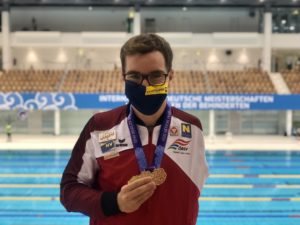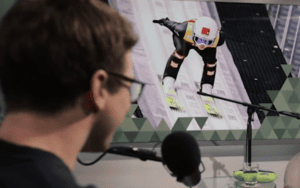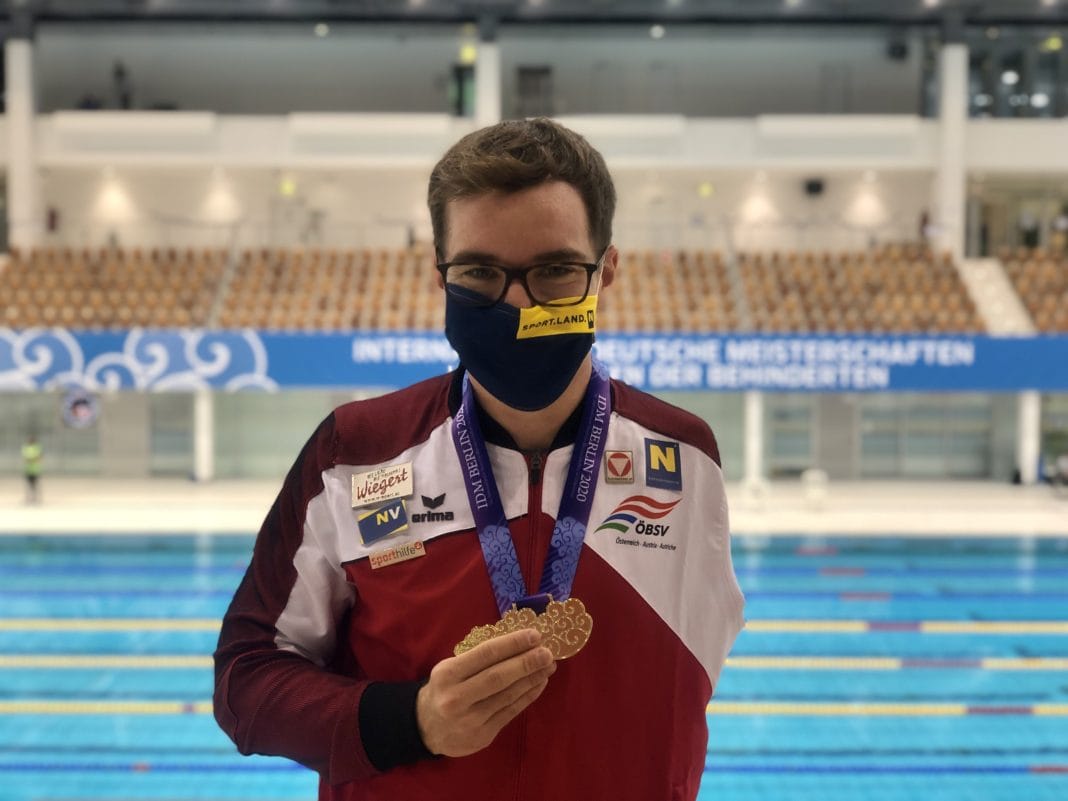After a car accident, 28-year-old Andreas Onea had to have an arm amputated. However, he didn’t let this throw him off course and went on to have a stellar career in para-swimming. Recently, the army athlete has even started hosting the new army podcast “SportRapport” and he still has big sporting goals.
Mr. Onea, you have already celebrated great sporting successes in the past, but you still have some ambitious career goals. To what extent is the current coronavirus crisis limiting you? How are you dealing with the situation as an athlete? Is it difficult to stay motivated when it is so uncertain what will happen in the future?
Because we don’t have any competitions at the moment, it’s a challenge. But there are simply things that I can’t influence, and a pandemic is definitely one of them. What I can influence is whether I still go full throttle in training and stick to my goals. And my goal is to be as good as possible at the Paralympic Summer Games in Tokyo this year. To achieve this, I simply have to train, regardless of whether I have a competition in a few months’ time or not. As army and professional athletes, we are lucky to be able to pursue our sport despite the current situation. It’s a great privilege that we’re allowed to do this, and I’m very grateful for that.

What helps you with low motivation, regardless of the current situation?
It helps that I know my sporting goals, so I know exactly what I want to do and where I want to go. If I don’t give 100 percent in training, I won’t achieve these goals. I also know that I can be an inspiration to other people with my career, because every success shows what people with disabilities can achieve. This social leverage that I have is an insanely important driver for me, which motivates me so much that I don’t allow myself to not give 100 percent at some point.
Do you currently sense greater cohesion in the sports scene?
During the first lockdown, many army athletes helped out in the food warehouses. There was definitely a sense of solidarity there. And we also try to support each other in other ways. Also by adhering to all the rules, because of course we want this opportunity to continue and we want to be allowed to continue training. Of course, we also follow how the others are doing and keep in touch to motivate and support each other. I can already feel that we’ve moved closer together.
What moment from your career so far has remained particularly memorable for you?
My bronze medal at the Paralympic Games in Rio de Janeiro shines above everything I have experienced and achieved so far. I prepared for this for many years and it worked. When you stand on the podium, it’s just an indescribable feeling. Every time I think about it, I get goosebumps. This success has enriched my career and my life enormously.

You recently started hosting “SportRapport”, the podcast of the Army Sports Center, alongside your sporting career. What appeals to you about the job?
I am an avid podcast listener myself. I am fascinated by the medium, especially the fact that you can consume podcasts very consciously and choose from a wide range of topics. I like to listen to podcasts during strength training or when I’m out and about and use them as an opportunity to further my education and broaden my horizons. Because I’m also very passionate about people and their stories, I can combine this perfectly in this new role. The Army Sports Center simply has great athletes and we would like to tell the stories of these passionate sportspeople in such a way that you also get to know the people behind their successes. In other words, with more depth than is normally possible in a classic interview.
The new Armed Forces podcast was launched in mid-November SportRapport. Andreas Onea moderates the conversations with top Austrian Armed Forces athletes.
Click here to read the other articles in our “5 questions to” series.










